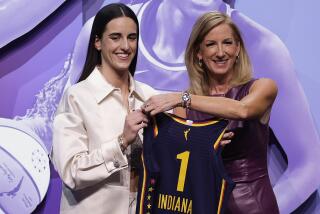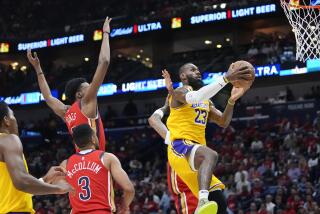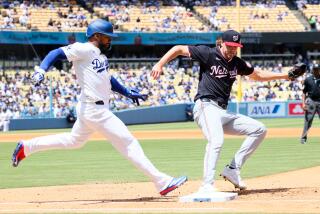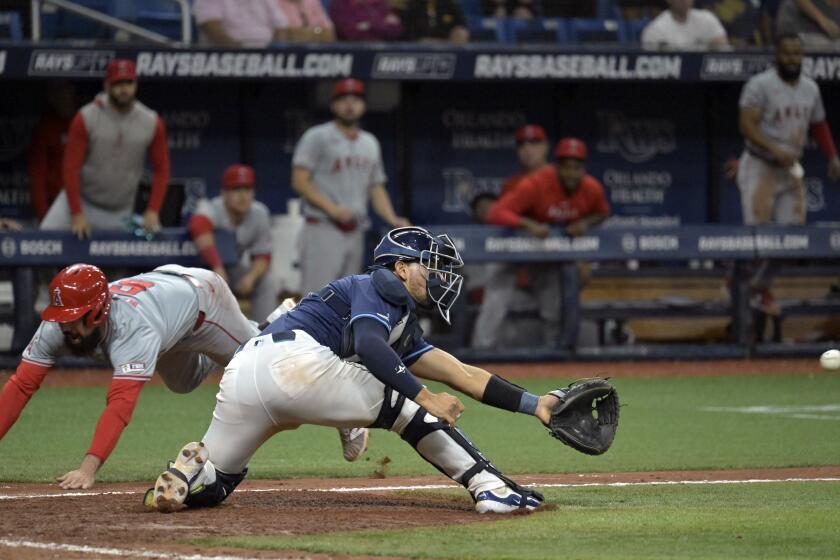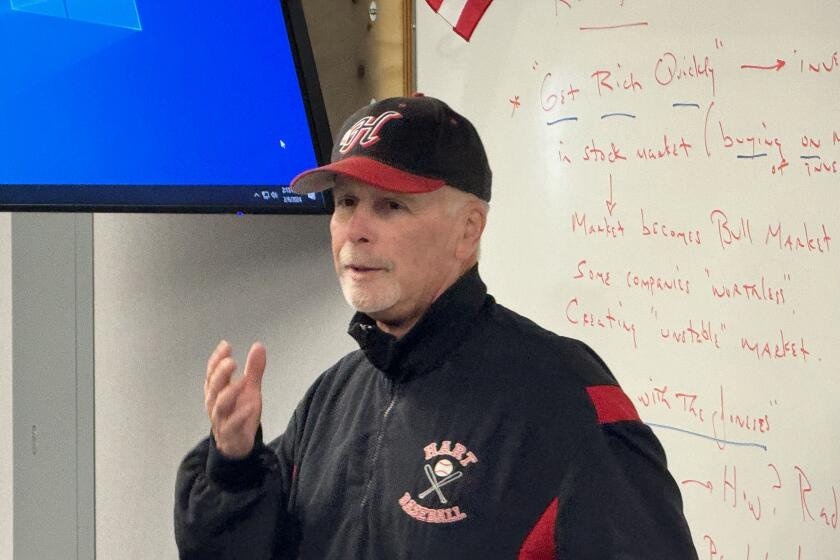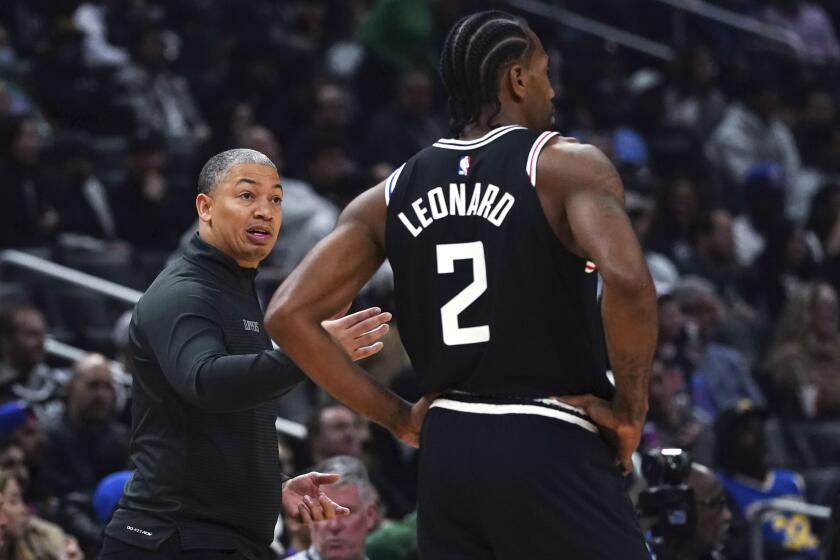NBA lockout in July is a virtual certainty
I don’t even know who you are anymore. …
In the happy days when David Stern was the only commissioner who had never lost a game to a work stoppage, he once opened talks by announcing, “Call me Easy Dave.”
In 1998, No Longer as Easy Dave kissed off the record he was so proud of, locked the players out for two months and came within a twitch of pulling the plug on the season.
Whichever way Stern goes, he means business.
At the moment, he’s focused on the players’ 57% split of the revenue, of which he’d like one-third back.
Not that this is the NFL, where players tremble before the might of whoever is commissioner.
The National Basketball Players Assn. has been a force since its founding at the 1964 All-Star game in Boston, where players demanded a pension plan before taking the court.
Demonstrating who was whom, Lakers owner Bob Short pounded on the dressing room door, demanding Elgin Baylor and Jerry West come out, whereupon Baylor went to the door and told him not to worry his little head.
In 1998, Stern locked out a new generation, amid skepticism that millionaire players had the same stuff.
The millionaires stayed out until January, when the two sides made the deal that has served as the model since ... and Stern is now calling into question.
With that single exception, the two sides have treated each other with enough respect to do big things.
In the dark days of 1984 with franchises tottering, the union accepted the first salary cap — after the NBA became the first league to open its books.
Of course, in 1984 union director Larry Fleisher agreed with Stern’s assessment.
In 2010, Billy Hunter notes record revenue, Washington and Golden State selling at land-office prices and booming TV ratings that give the NBA a glow it hasn’t had since the ‘90s with Michael Jordan.
Stern insists the glow hides a broken economic model, projecting a $370-million loss — this season — and offering owners’ tax returns to prove it, quipping in one of his asides on a conference call:
“That’s our story and we’re sticking with it.”
Hunter called the figures “baloney,” noting they include hundreds of millions in depreciation and interest.
“I wouldn’t use the word again, but the things they’re asking for are nonstarters,” Hunter said.
“We haven’t gotten $1 more than what we were supposed to. The deal has been in place for 12 years [with the 2005 agreement essentially tweaking the 1999 deal] and all of a sudden it doesn’t work?
“We find that incredible.”
Insiders think Stern really wants a 50-50 split of revenue, as currently defined.
However, only Stern, still master of his side, knows what he has to get and how far he’ll go to get it.
A July 1 lockout is a virtual certainty, meaning only both sides are serious, which we already know.
Barring a collapse by either, we won’t start to see how reasonable anyone is prepared to be before August.
With 30 days needed to start up, Sept. 1 is the first real deadline to open the season on time.
No agreement by Sept. 21 and there goes Thanksgiving.
If it goes that long, Stern really thinks the model is broken, as opposed to merely wanting more for his side.
“We knew early on that this deal was not working,” Stern says, “but we had no choice but to live under it, and we elected to terminate it a year early.”
As for stories about the league contracting, or the union decertifying and filing an antitrust suit ...
The other side started those.
“Actually, it’s not rolling thunder, if the media didn’t make much of it,” Stern said. “We’re just responding because it’s our nature to respond.”
So, the situation is less dire than presented in the press?
Stern, thoughtfully: “No.
“The situation is what it is at the time of bargaining — and it finds us with many unprofitable teams.
“And although the owners have pledged to each other there will be revenue sharing, right now when you’re in a loss situation, there’s no revenue to share.”
That’s his story, or their stories. They’re sticking to them another eight or nine months, at least.
Key issue in NBA labor talks
What the league wants: David Stern says he wants the players’ 57% of revenue and wants to give them the owners’ 43%.
What the players want: Union head Billy Hunter has signaled he’s willing to discuss givebacks but doesn’t want to give back that much.
CBA expires: July 1.
More to Read
Get our high school sports newsletter
Prep Rally is devoted to the SoCal high school sports experience, bringing you scores, stories and a behind-the-scenes look at what makes prep sports so popular.
You may occasionally receive promotional content from the Los Angeles Times.
